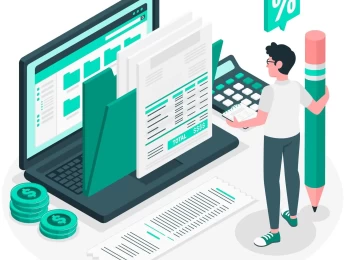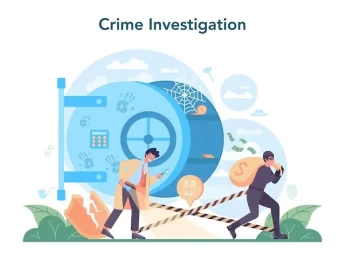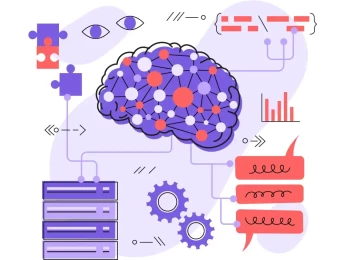Forensic auditing, investigations, and record-keeping are essential components of financial governance and compliance. They involve the meticulous examination of financial records and transactions to uncover irregularities, fraud, or discrepancies. They require a comprehensive understanding of accounting principles, legal frameworks, and investigative techniques.
Through forensic investigations, auditors delve into the intricacies of financial data, employing various tools and methodologies to gather evidence and reconstruct events accurately. Meanwhile, robust record-keeping practices ensure the integrity and reliability of financial information, facilitating transparency and accountability within organisations. Accurate documentation not only aids in regulatory compliance but also serves as crucial evidence in forensic examinations.
Together, these disciplines form a vital framework for safeguarding against financial malpractice, ensuring the accuracy and integrity of financial reporting, and upholding stakeholders' trust in the integrity of financial systems.
Upon completion of this course, participants will be able to:
- Develop a comprehensive knowledge of fraud, encompassing its diverse types and the constituent elements contributing to fraudulent behaviour.
- Delve into the pivotal function of internal auditors in detecting, preventing, and investigating fraud within organisational structures.
- Adapt agile auditing methodologies to forensic investigations, fostering adaptability and efficiency in the process.
- Review tools and expertise to recognize pivotal fraud indicators and warning signs to detect potential fraudulent activities proactively.
- Recognise the significance of digital forensics and data analysis in uncovering fraudulent activities, incorporating practical exercises for hands-on learning.
- Craft and execute a robust fraud control framework, encompassing fraud risk evaluation and mitigation strategies.
- Discuss methodologies, tools, and proficiencies essential for effective forensic investigations.
- Enhance proficiency in conducting successful fraud inquiries, including refining interview techniques and mastering evidence collection.
- Gather insights into the legal ramifications of leveraging forensic data in investigations, emphasising ethical conduct throughout the investigative process.
This course is designed for anyone responsible for ensuring proper investigation and record-keeping procedures are followed. It would be most beneficial for:
- Auditors
- Law Enforcement Professionals
- Data Analysts
- Administrators
- Investigators
- Fraud Examiners
- Data Controllers
- Forensic Accountants
- Security Personnel
This course uses a variety of adult learning styles to aid full understanding and comprehension. Participants will review case studies revealing some real-world fraud cases, understand how they were discovered, and investigate to come to a positive conclusion.
They will work together to investigate new systems and technology to help with fraud prevention and understand how to implement new and strategic processes for fraud prevention into an organisation from communication to rollout.
Day 5 of each course is reserved for a Q&A session, which may occur off-site. For 10-day courses, this also applies to day 10
Section 1: Forensic Auditing & Fraud Processes
- Introduction to Forensic Auditing Principles
- Understanding various types of fraud
- Components of fraudulent activities
- Role of internal auditors in fraud detection
- Agile auditing techniques for forensic investigations
- Tools and methods for effective fraud detection
- Digital forensics and data analysis in fraud investigations
- Developing a fraud control framework
- Forensic auditing methodologies and tools
- Investigation techniques for fraud detection
- Legal and ethical considerations in forensic auditing
Section 2: Agile Accounting & Forensics
- Agile methodologies in financial investigations
- Tools and techniques for agile accounting
- Continuous improvement in forensic accounting practices
- Agile approaches to fraud detection and prevention
- Adaptability in accounting for dynamic financial environments
- Integrating agile practices into forensic auditing processes
- Case studies on successful Agile Accounting implementations
- Collaboration and communication in agile forensic teams
- Agile risk management strategies in accounting and forensics
Section 3: Fraud Detection Practices
- Data analytics for fraud detection
- Red flags and warning signs of fraud
- Internal controls and fraud prevention measures
- Conducting fraud risk assessments
- Fraud detection in financial statements
- Utilising technology for fraud detection
- Investigative techniques in fraud detection
Section 4: Digital Forensics & Fraud Control Measures
- Tools and techniques for digital evidence collection
- Analysis of digital artefacts in fraud investigations
- Cybercrime detection and prevention strategies
- Fraud control measures in digital environments
- Digital evidence preservation and chain of custody
- Investigating financial fraud in digital transactions
- Role of encryption in fraud control
- Implementing fraud detection software and systems
- Legal considerations in digital forensic investigations
Section 5: Fraud Methodology & Mitigation
- Risk assessment and mitigation strategies for fraud
- Internal controls to prevent and detect fraud
- Fraud investigation techniques and procedures
- Fraudulent financial statement analysis
- Technology-enabled fraud detection and prevention
- Implementing fraud prevention policies and procedures
- Collaboration with law enforcement in fraud mitigation
- Continuous monitoring and improvement of fraud mitigation measures
Section 6: Investigating Fraud & the Legalities
- Legal frameworks relevant to fraud investigations
- Evidence collection and preservation in fraud cases
- Interviewing techniques for fraud investigations
- Forensic accounting in legal proceedings
- Courtroom procedures and testimony in fraud cases
- Compliance with regulations in fraud investigations
Upon successful completion of this training course, delegates will be awarded a Holistique Training Certificate of Completion. For those who attend and complete the online training course, a Holistique Training e-Certificate will be provided.
Holistique Training Certificates are accredited by the British Assessment Council (BAC) and The CPD Certification Service (CPD), and are certified under ISO 9001, ISO 21001, and ISO 29993 standards.
CPD credits for this course are granted by our Certificates and will be reflected on the Holistique Training Certificate of Completion. In accordance with the standards of The CPD Certification Service, one CPD credit is awarded per hour of course attendance. A maximum of 50 CPD credits can be claimed for any single course we currently offer.
- Course Code PF1-150
- Course Format Classroom, Online,
- Duration 5 days










